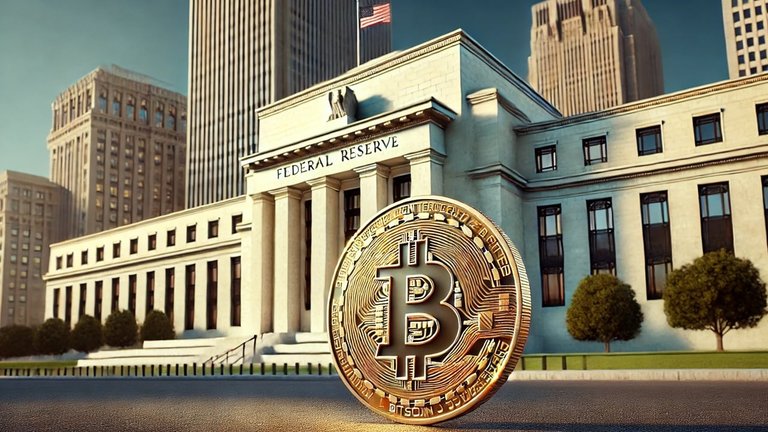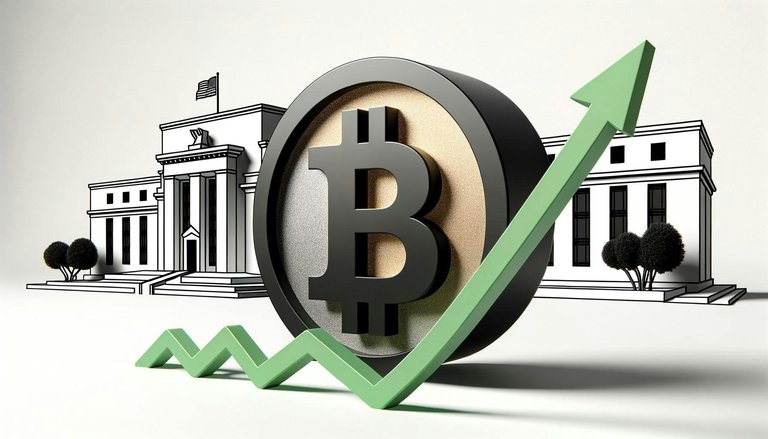
The notion of Bitcoin reaching $1 million may seem like an overly ambitious forecast, but experts argue that achieving this milestone would require a transformative event: the creation of a U.S. Federal Bitcoin Strategic Reserve.
Jeff Park, head of Alpha Strategies at Bitwise Asset Management, has put forth this bold hypothesis, estimating the probability of establishing such a reserve at less than 10% by 2025. While the likelihood is low, the implications of such a move would be monumental for the cryptocurrency market.
What Would a Federal Bitcoin Reserve Entail?
A Federal Bitcoin Reserve would represent a seismic shift in how governments interact with cryptocurrencies. It would involve the U.S. Treasury allocating funds to purchase and hold Bitcoin as a strategic asset, much like gold reserves.
This idea, however, was dismissed by Federal Reserve Chair Jerome Powell during the Fed's latest meeting. Following a widely anticipated 25-basis-point rate cut, the central bank emphasized that future cuts would proceed cautiously and explicitly ruled out the possibility of the Treasury adopting Bitcoin as a reserve asset.
Park argues that such a reserve is the only realistic scenario in which Bitcoin could achieve the $1 million mark by 2025.
“The idea of establishing a Federal Bitcoin Strategic Reserve by 2025 has less than a 10% chance of materializing,” Park stated on X (formerly Twitter). “But it’s the only pathway for Bitcoin to surpass $1 million by that timeframe.”
Park’s analysis underscores the potential for government actions to shape Bitcoin’s trajectory. As the cryptocurrency market matures, a federal reserve for Bitcoin could catalyze institutional adoption, create unprecedented demand, and trigger a ripple effect across global markets.
A Turning Point for Bitcoin?
Speculation about the U.S. creating a Federal Bitcoin Strategic Reserve has gained traction in recent months.
Jeff Park’s projection of a sub-10% probability highlights the challenges, yet he maintains that such a reserve is the sole plausible route for Bitcoin to reach a $1 million valuation.

Legislative and Market Developments
Senator Cynthia Lummis has introduced legislation advocating for the U.S. Treasury to acquire Bitcoin, fueling debate over the feasibility and implications of such a move.
Proponents argue that holding Bitcoin could act as a hedge against inflation, while critics point to its high volatility and associated risks. Market sentiment remains divided; surveys suggest a 31% probability that Bitcoin could be recognized as a strategic reserve asset in the U.S. by 2025.
The Trump Factor and Bitcoin’s Prospects
Although still speculative, the establishment of a Federal Bitcoin Reserve could redefine market dynamics, driving prices higher through institutional adoption and fostering global confidence in cryptocurrencies.
Bitcoin’s resilience continues to capture global attention, yet the $1 million milestone remains uncertain. However, recent developments under the Trump administration have reignited optimism within the crypto sector.
In the lead-up to the elections, the Trump family made significant investments in cryptocurrencies, sparking expectations that the incoming administration would favor these financial instruments. Early actions appear to support this notion.

Key moves include nominating Paul Atkins, a vocal crypto advocate, to lead the SEC; considering David Sacks, a prominent crypto investor and former PayPal CEO, for the role of "Crypto Czar"; and proposing Elon Musk, a well-known supporter of Dogecoin, to spearhead DOGE-related initiatives.
These decisions have spurred both institutional and retail investors to enter the market, drawn by the prospect of substantial returns. While specific policy details are yet to emerge, the immediate growth reflects three key outcomes of "Trumponomics" in action.
The trend was evident even during Trump’s campaign, where his interest in NFTs tied to his personal brand became a talking point. Now, all eyes are on the new administration to see how these crypto-friendly stances will materialize once the president-elect takes office.


